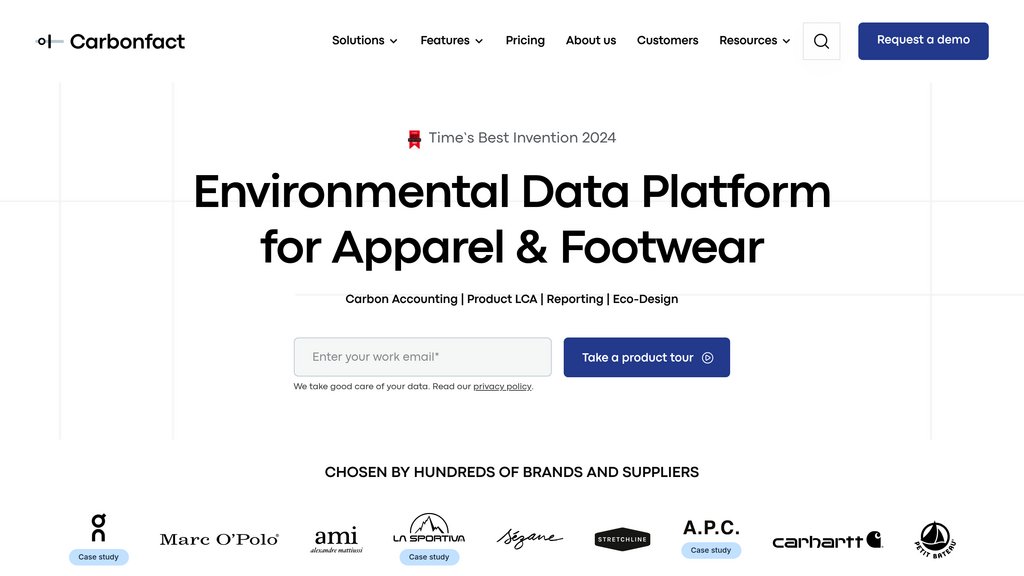Carbonfact
Fashion carbon management platform: measure and reduce supply chain emissions
Introduction
Carbonfact is a carbon management platform specifically engineered for the fashion, textile, leather, and footwear sectors. It simplifies the aggregation and analysis of supply chain information to provide precise, product-specific carbon footprint evaluations. The system automates the ingestion of data from current infrastructures like PLM and ERP, utilizes advanced algorithms to compensate for missing information, and delivers dynamic dashboards for immediate, actionable intelligence. It aids in adhering to international standards such as CSRD, helps pinpoint major sources of emissions, guides focused data collection from suppliers, and allows for simulating the outcomes of altering designs or materials. The core objective is to equip fashion companies with the data intelligence needed to drive decarbonization and enhance their ecological credentials.
Key Features
* Industry-Tailored Carbon Accounting: Specifically designed for apparel, footwear, and luxury goods, delivering granular carbon footprint analysis for individual products and entire collections.
* Automated Data Aggregation: Effortlessly combines information from diverse sources including PLM systems, ERP software, and spreadsheets, featuring bespoke connectors for real-time data updates.
* Advanced Life Cycle Assessment Engine: Computes environmental impact across every stage of a product's life using established methodologies, supplemented by proprietary algorithms to address data deficiencies.
* Compliance Reporting Facilitation: Produces documentation that aligns with global mandates like CSRD, DPP, and the NY Fashion Act, streamlining regulatory adherence.
* Interactive Insight Dashboards: Offers live data visualization, scenario simulation capabilities, and tools to identify emission concentration points, supporting informed sustainability planning.
* Intelligent Supplier Data Guidance: Strategically advises on which supplier information is most critical to gather, enhancing assessment precision while optimizing resource allocation.
Use Cases
* Granular Product Impact Analysis: Evaluate the environmental footprint of specific stock-keeping units (SKUs) to guide design, procurement, and sustainability initiatives.
* Automated Regulatory Submission: Create and file compliance reports automatically for frameworks including CSRD and Digital Product Passports (DPP).
* End-to-End Supply Chain Emission Monitoring: Achieve comprehensive visibility into emissions across the value chain, identify key areas for improvement, and focus reduction activities.
* Sustainable Design Simulation: Model the environmental consequences of switching materials or altering manufacturing processes to boost product eco-efficiency.
* Streamlined Supplier Collaboration: Effectively gather and handle data from suppliers to refine the accuracy of environmental impact disclosures.
